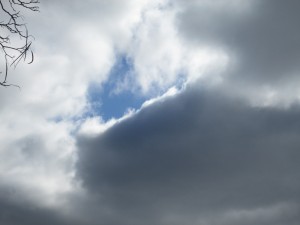Last Saturday I took the 83 bus, which was running late, to an all-day workshop on restorative justice circles** in Cambridge. Seated across from me was an elderly, well-dressed African American man; he was also blind. When the bus approached the intersection of Beacon and Washington Streets, he pushed the call button indicating he wanted to get off. The bus maneuvered towards the bus stop but was stuck in heavy traffic. So I had plenty of time to notice a young, heavy-set African-American man in a denim jacket and jeans, clearly agitated, who paced the sidewalk maybe ten feet ahead of the bus. “What’s his story?,” I wondered. (And, yes, my Flight or Flight was definitely triggered—not bigtime—but I was a little wary, shall we say?)
When the bus stopped, as the blind man, guided by his cane, slowly and carefully walked from his seat and approached the opened bus door, the agitated man brightened and quickly moved to the left side of the door so that when the elderly man stepped off onto the curb, the young man gently and tenderly took his arm and the two began walking slowly towards the corner.
“Why don’t more people tell stories like that!” I wondered as the bus pulled away.
So I did.
 Naomi Shihab Nye
Naomi Shihab Nye
* “Kindness”
you must lose things,
feel the future dissolve in a moment
like salt in a weakened broth.
What you held in your hand,
what you counted and carefully saved,
all this must go so you know
how desolate the landscape can be
between the regions of kindness.
How you ride and ride
thinking the bus will never stop,
the passengers eating maize and chicken
will stare out the window forever.Before you learn the tender gravity of kindness,
you must travel where the Indian in a white poncho
lies dead by the side of the road.
You must see how this could be you,
how he too was someone
who journeyed through the night with plans
and the simple breath that kept him alive.Before you know kindness as the deepest thing
inside,
you must know sorrow as the other deepest thing.
You must wake up with sorrow.
You must speak to it till your voice
catches the thread of all sorrows
and you see the size of the cloth.Then it is only kindness that makes sense anymore,
only kindness that ties your shoes
and sends you out into the day to mail letters and
purchase bread,
only kindness that raises its head
from the crowd of the world to say
It is I you have been looking for,
and then goes with you everywhere
like a shadow or a friend.
**Because as my F/friend Lynn says: “If we’re going to change the criminal justice system we have to come up with an alternative.”





